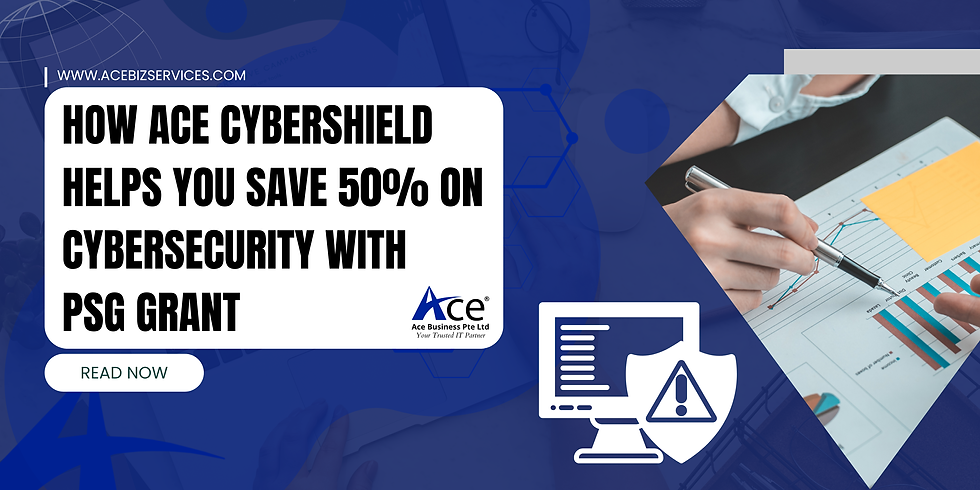Navigating and Preparing for the GST Hike
- ACE Team
- Mar 9, 2022
- 3 min read

The previous GST rate hike took place on 1 July 2007, some 14 years ago. More importantly, the upcoming and much-talked-about GST rate hike is from 7% to 9% announced in Budget 2018 and it affects most businesses.
When should you account for GST at the new rate?
The details of the transitional time of rules likely to be announced by the IRAS after the date of the GST rate hike are confirmed. It is important to stick to the transitional time of supply to ensure that your GST is accounted for at the correct rate.
If an invoice is issued before the rate changes but the goods are delivered and payment is received after the GST rate hike, the supplier will likely be required to account for GST at the new rate under the transitional time of supply rules.
What is the impact of a GST rate hike on my pricing strategy?
GST-registered businesses have to account for GST at the new rate to the IRAS after the GST rate hike, it does not necessarily mean that additional GST has to be collected from the customers. The prices charged by you to your customer are a private arrangement.
You should consider your customer profile and price sensitivity of your products in your pricing strategy, especially if they are not GST registered and are unable to recover the GST charged.
If you choose to absorb the full GST amount such as “GST absorbed” promotional campaigns or only the GST rate hike, such pricing strategy will eat into your bottom line.
Do you need to make any changes to my systems and processes?
You should think about the following in preparation for a GST rate hike:
Review and make adjustments to your point of sales, invoicing, procurement and accounting systems to incorporate the new GST rate and to take into account the transitional time of supply rules
Update price displays
Train your accounting, sale and procurement staff on the implications of a GST rate hike
How should you mitigate the impact of a GST rate hike on my cost?
Most GST registered businesses can recover the GST incurred on their expenses and a GST rate hike should not have a direct impact on costs. For GST-registered businesses with significant imports.
Some GST registered companies such as banks, insurers, brokerage firms, residential property developers, charities are not able to recover the GST incurred on their expenses in full due to the nature of their businesses. Such businesses may consider bringing forward their big-ticket purchases and conducting a review of your input tax recovery formula.
Should you apply for voluntary GST registration?
If you are not GST-registered, your costs will likely increase after the GST rate hike as your suppliers will likely pass on the GST to you.
While a voluntary GST registration offers you the avenue to recover the GST incurred on expenses, it is not always the appropriate option. You should carefully consider the following pros and cons before you proceed with the decision to apply for a voluntary GST registration:
Benefits - The ability to recover the GST incurred on business expenses (subject to conditions) which reduces costs of inputs.
Costs - Compliance costs such as making changes to your systems, processes, invoice format and price display, filing of GST returns and attending to queries from the IRAS
Impact on your customers
There should be minimal or no impact to your customers if your sales are zero-rated or if your customers are able to recover the GST charged in full
Your product will become more expensive with the GST rate increase if customers are not able to recover the GST charged. You should consider if you can still be price competitive after GST-registration.
Conclusion
It is better to start your preparation early as there is going to be a GST hike in the future, so that you can manage when the rate changes and find the solutions available to mitigate the impact of irrecoverable GST costs.
Need IT services?
Call us at +65 6262 0402 or email us at care@acebizservices.com to get the information details on your needs.











Comments